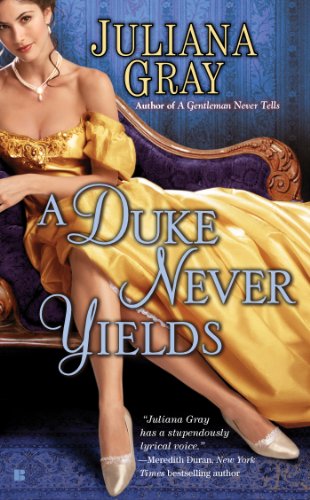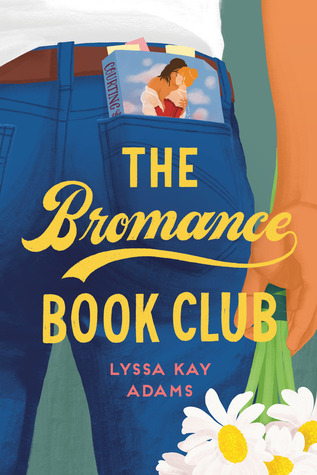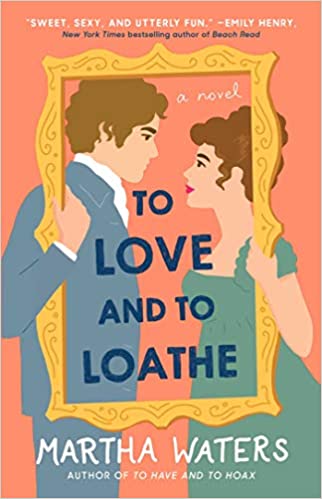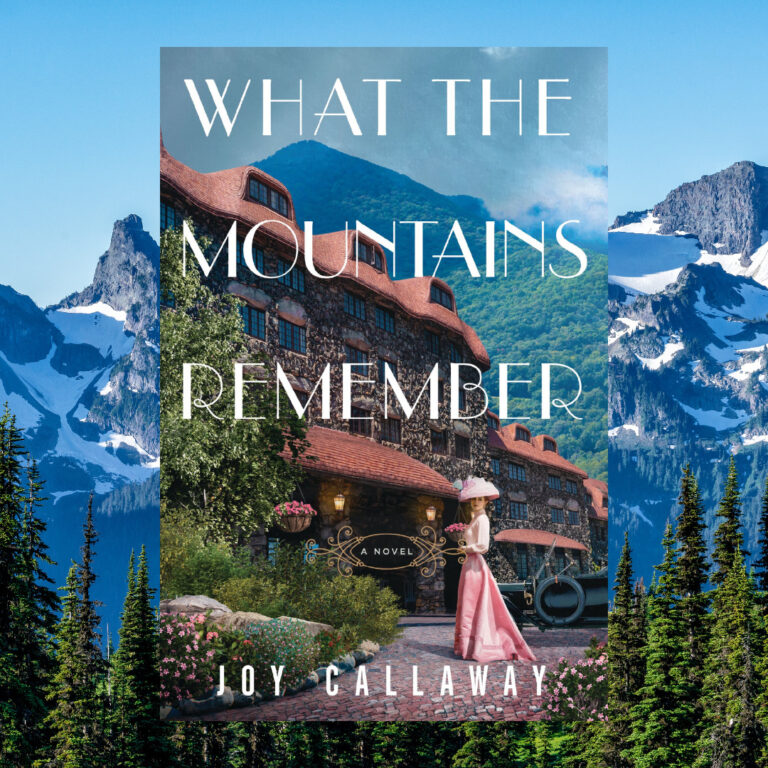[Note from Frolic: We’re so excited to have author Martha Waters guest posting on the site today. She’s sharing her experience writing less than perfect sex in romance. Take it away, Martha!]
In a world where, too often, girls are told that the idea of a healthy, equal relationship that is also sexually fulfilling is nothing but a fantasy, romance novels—with their focus on both an emotional and a physical connection—can feel downright revolutionary. There’s something wonderfully liberating about reading a book in which a heroine finds a deep and lasting love with a man (or woman!) who is also instantly brilliant in bed, and romance readers are familiar with many a wedding night scene in which a virginal heroine is taken to the heights of pleasure by a skilled, experienced hero.
However, as I was writing my latest Regency rom-com, To Love and to Loathe, I found myself coming back to this idea—of a hero who is an immediate success in the sack—and wanting to have a bit of fun with it. After all, as we all know, relationships take work, and oftentimes a bit of honest communication is necessary to get to true fireworks in the bedroom. What were the odds, I asked, that a handsome, charming, wealthy marquess—with the money and power to seduce any woman he wanted—would have ever received honest feedback in bed? This forms the basis of the friends-with-benefits arrangement my hero and heroine come to at the start of my book, but it also got me thinking about other romances that depict sex that, at the outset, isn’t so spectacular—and how, precisely, this connects to the larger issues at play in a romance novel.
The first book to spring to mind that plays with this idea—and a personal favorite of mine—is Juliana Gray’s A Duke Never Yields. It’s the third in a Victorian romance trilogy set at a slightly magical Italian castle, and it features a headstrong young heroine who has decided to take a lover as she attempts to seduce a rakish duke who has vowed to remain celibate for an entire year. The entire book is wildly entertaining, but one of my favorite scenes is when the hero and heroine sleep together for the first time—and she is immediately indignant, not just with how dissatisfying she found the experience, but with the fact that the hero wasn’t remotely aware that it hadn’t been good for her. Turns out, a wealthy duke might have a reputation as a famous rake without the skills to back it up, since no previous lover has dared speak with him honestly about the subject.
Another historical romance that tackles this topic is Eloisa James’s Once Upon a Tower, which is a (very) loose reimagining of Rapunzel. In this one, the hero and heroine marry each other as near-strangers, and the hero, who is a virgin, doesn’t realize that the heroine isn’t enjoying the marriage bed—especially when she begins faking it, so as not to offend him. Their third act fight centers around his recognition of her duplicity—once she has an actual orgasm, thus making him realize that every one prior to that had been feigned—but it’s also, on a deeper level, about two people who were married on very brief acquaintance who are having to reconcile the person they thought they’d married with the actual reality of them.
This trope works particularly well in historical romances because of the lack of experience that was expected on the part of blushing brides, as well as the power dynamics surrounding gender roles and expectations at the time; however, lest you think that this is only an issue for Regency heroines and not twenty-first century women, you need look no further than Lyssa Kay Adams’s The Bromance Book Club. In this rom-com, the married hero and heroine are separated following a fight in which the hero realizes that his wife has been faking it for their entire marriage—and, delightfully, he turns to romance novels to win her back. There’s something wonderfully meta about a romance hero turning to other romance heroes for help with his own relationship woes, but the entire arc of this book is a testament to the fact that female pleasure—or lack thereof—is not an issue solely relegated to historical times.
What all three of these books accomplish, in different ways, is centering the emotional conflict of the main couples around their issues in the bedroom. Often in romance, the conflict exists in spite of the couple’s satsifying sex life—things are great in the bedroom, but they can’t communicate about other issues. With these romances, however, a couple’s issues around sex are a sort of microcosm of the larger issues in their relationship, meaning that it’s only once they can work things out in the bedroom that they’re able to communicate properly about other issues, too.
I’ll be the first to admit that I like a romance featuring immediately fantastic sex as much as any other reader—after spending chapters and chapters internally shrieking, “Kiss, you idiots!” at the protagonists, it’s undeniably gratifying when they do (and more) and it’s immediately spectacular. But after writing my book—and reading so many other great ones—I have newfound appreciation for the ways that, in a world where we’re still reading articles about the gender orgasm gap, reading a book in which a couple successfully navigates this fraught terrain despite some initial difficulties can be ultimately just as rewarding.
About the Author:
Martha Waters is the author of To Have and to Hoax and To Love and to Loathe. She was born and raised in sunny South Florida, and is a graduate of the University of North Carolina at Chapel Hill. She works as a children’s librarian in North Carolina, and spends much of her free time traveling.
To Love and to Loathe by Martha Waters, out now!
The widowed Diana, Lady Templeton and Jeremy, Marquess of Willingham are infamous among English high society as much for their sharp-tongued bickering as their flirtation. One evening, an argument at a ball turns into a serious wager: Jeremy will marry within the year or Diana will forfeit one hundred pounds. So shortly after, just before a fortnight-long house party at Elderwild, Jeremy’s country estate, Diana is shocked when Jeremy appears at her home with a very different kind of proposition.
After his latest mistress unfavorably criticized his skills in the bedroom, Jeremy is looking for reassurance, so he has gone to the only woman he trusts to be totally truthful. He suggests that they embark on a brief affair while at the house party—Jeremy can receive an honest critique of his bedroom skills and widowed Diana can use the gossip to signal to other gentlemen that she is interested in taking a lover.
Diana thinks taking him up on his counter-proposal can only help her win her wager. With her in the bedroom and Jeremy’s marriage-minded grandmother, the formidable Dowager Marchioness of Willingham, helping to find suitable matches among the eligible ladies at Elderwild, Diana is confident her victory is assured. But while they’re focused on winning wagers, they stand to lose their own hearts.
















